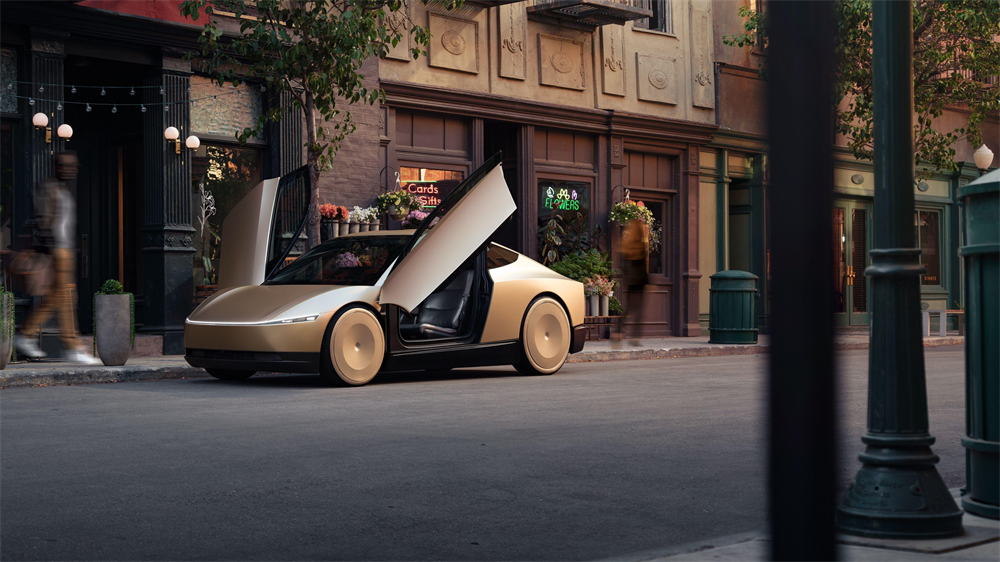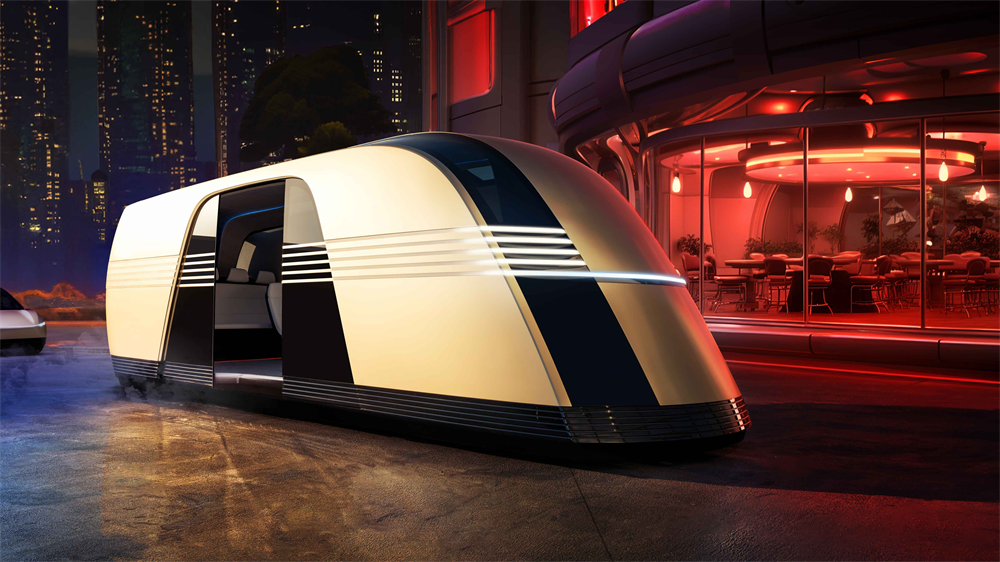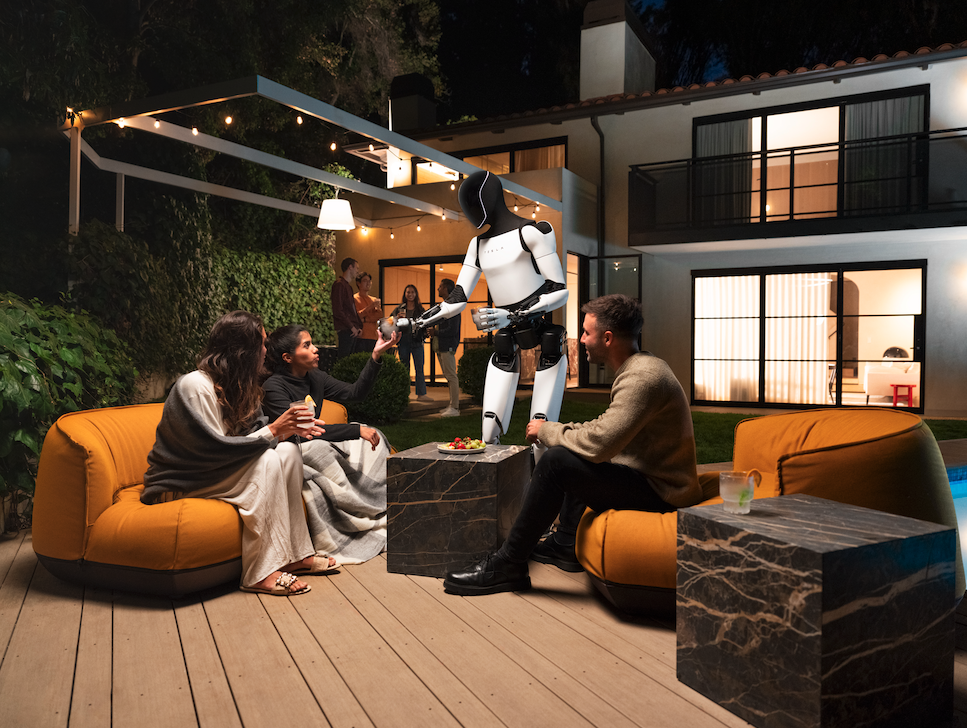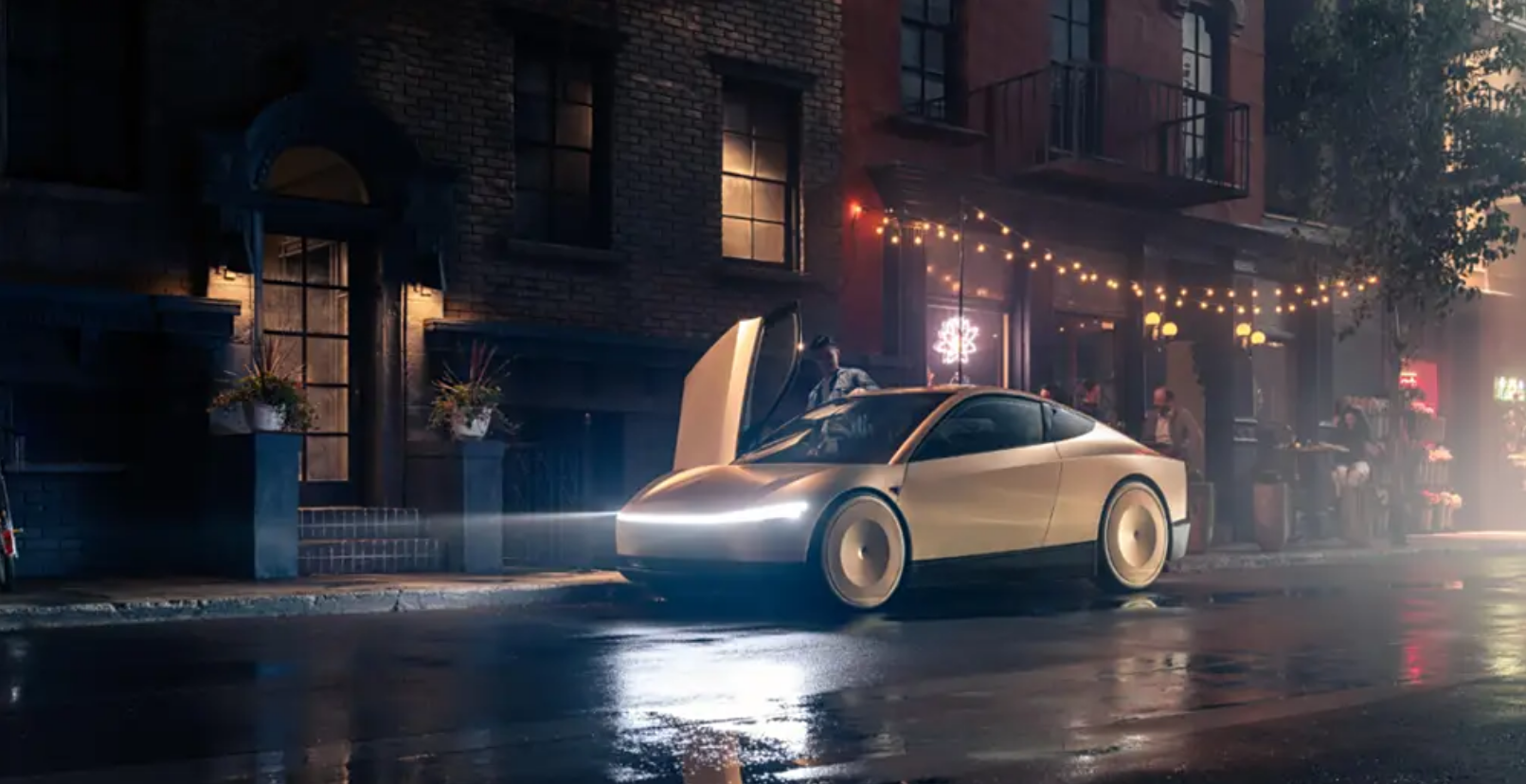
Despite Tesla's earlier warning of a potential slowdown in expansion, Elon Musk still faces the need for a "comeback battle" following the announcement of the company's third-quarter delivery volume data earlier this month.
The delay heightened anticipation for Tesla's 'We, Robot' conference, and Elon Musk's arrival in a Cybercab Robotaxi increased excitement for the event. The 20-minute conference was divided into three segments: presentation of the Robotaxi product Cybercab, demonstration of the self-driving van Robovan, and introduction of the humanoid robot Optimus.
Contrary to expectations, only Cybercab and Cybervan were showcased at the press conference this time, excluding the previously rumored affordable car Model 2. This Tesla event still felt like a 'future' presentation. Cybercab is set for production in 2026, while no specific timeline was announced for Robovan. The Optimus robot remains in the conceptual stage as well, with no further technical details disclosed during the conference.
The capital market is dissatisfied with Tesla, and the stock price dropped by over 4% during the conference. Overall, it seems that Musk has once again made grand promises; however, similar to Tesla's initial vehicle delivery in China a decade ago, its advancements in intelligence continue to lead.
A self-driving car is still a concept
The traditional steering wheels and pedals have been removed in this Cybercab, the main focus of this release. Passenger-vehicle interaction now solely relies on the central control screen inside the car.
Musk announced at the press conference that Cybercab will be equipped with AI 5 computing hardware. According to previous information, AI 5 will utilize a 4nm process, resulting in a fivefold improvement in energy efficiency and a tenfold increase in computational power compared to HW 4.0. Tesla provided more details in an article about their X model, stating that their Robotaxi service will not charge driver fees and fully autonomous vehicles will rely solely on cameras instead of radar or lidar devices.

According to Musk's plan, Tesla will launch fully autonomous driving cars Model 3 and Model Y in California and Texas next year. However, he also mentioned that product delivery often takes longer than initially estimated, so the timeline is optimistic. Additionally, Cybercab is expected to enter production before 2027 with an expected price of less than $30,000.
The operating cost of Cybercab, as estimated by Tesla, is expected to decrease to around 20 cents per mile over time, equivalent to approximately 0.9 yuan per kilometer in Chinese currency. Currently, city buses in the United States have an average cost of $1 per mile. In Wuhan’s market, Apollo Go, a pioneer in autonomous taxi services, charges between 1.6 and 1.98 yuan per kilometer. However, after deducting subsidies and discounts, the actual price ranges from 4.6 to 6.7 yuan per kilometer. The daily operating cost for each vehicle is approximately 370 yuan.

The new product release includes the Robovan, an autonomous multi-purpose vehicle larger than the Model Y that can accommodate up to 20 people simultaneously. It can be used for commercial and private travel, as well as functioning as a school bus or transporting goods. Musk expects it to reduce transportation expenses to 5-10 cents per mile.
Musk heavily promotes the humanoid robot Optimus, expected to be priced between $28,000 and $30,000; however, its release date remains undisclosed.

Triple D Trading stock trader Dennis Dick expressed disappointment as a shareholder due to limited clarity on the timeline, believing that the market requires a more explicit timeframe and insufficient communication or disclosure has been made.
The supervision in the future is uncertainty
The safety of auto-driving technology is a major concern for the public and a key factor in obtaining regulatory approval, in addition to technological and temporal uncertainties faced by Cybercab.
Musk confidently stated in the previous financial report meeting, "We aim to adopt a universal solution applicable worldwide, even across different planets." However, when confronted with regulatory issues, he expressed concern: "Once we can prove its safety or at least that it is much safer than humans, regulatory authorities will support it. If we can provide billions of miles of test data in the future to demonstrate that FSD is safer than human drivers without supervision, no regulatory agency will hinder this technology."
The regulatory authorities will approve if Tesla can prove that its autonomous driving system is safer than human drivers. However, the definition of 'safer' and the methods for collecting and evaluating sufficient data remain unresolved issues.


According to Musk, FSD is expected to achieve unsupervised autonomous driving in Texas and California next year. However, there was no mention of the supervised version being approved in China by the end of this year during the press conference. The current outlook seems unpromising.
However, while Robotaxi has already entered the Chinese market, widespread adoption will not happen immediately due to the need for extensive testing and validation to ensure safe and reliable operation in complex road conditions and unforeseen events.
Domestic brand is ready to against
At Xiaopeng Motors' global debut of the P7+ launch event, which took place one day before Tesla's conference, they unveiled the world's first AI car. He Xiaopeng, Chairman and CEO of Xpeng, emphasized that the vehicle is equipped with dual Orin-X chips and features the latest AI Eagle Eye visual intelligent driving solution. He also highlighted distinctions between Robotaxi and Tesla by stating their focus on enhancing autonomous parking capabilities in Robotaxi scenarios, customizing passenger experiences both inside and outside of the vehicle, and improving safety redundancy without getting involved in operations.
With over 7 million completed rides, Apollo Go is expanding globally and actively engaging with international companies. They plan to test and deploy self-driving taxis in locations like Singapore and the Middle East. A representative from Apollo Go responded to the media by stating their plans to launch version 10.0 of the Apollo open platform for autonomous driving, specially designed for global users.
Additionally, Huawei's Intelligent Car Solution BU has invested over 30 billion yuan in R&D and boasts a research team of 7,000 people. Recently, Xiaomi's Intelligent Driving Team completed an organizational restructuring by merging the "Perception" and "Control" departments into the "End-to-End Algorithm and Function Department," aiming to achieve end-to-end intelligent driving by 2024.
The people believe that new energy’s intelligent competition has started.
The press conference showcased Tesla's 'promising' ideas, which have gained recognition from industry professionals. Cui Dongshu, Secretary General of the China Passenger Car Association, praised Tesla's new product release as a testament to their leading position in autonomous driving technology. He believes that Tesla's self-driving taxis represent a breakthrough in intelligent AI development and signal the eventual replacement of traditional fuel vehicles by smart cars. China and the United States are at the forefront of global growth in intelligent electric vehicles. Cui emphasized China's advantages in intelligent electrification and urged American and European car companies to expedite their transition to new energy sources, jointly promoting market electrification.
Translator:Wei Xiong

 Room 1104,Block B,JingBan Building,6 Middle Beisanhuan Road,Xicheng District,Beijing
Room 1104,Block B,JingBan Building,6 Middle Beisanhuan Road,Xicheng District,Beijing
 (8610)62383600
(8610)62383600
 quanqixiang@carresearch.cn
quanqixiang@carresearch.cn
 京公网安备:11010202007638号|京ICP备17032593号-2|Report illegal and bad information:010-65993545-8019 jubao@carresearch.com
京公网安备:11010202007638号|京ICP备17032593号-2|Report illegal and bad information:010-65993545-8019 jubao@carresearch.com
Legal support:Beijing Yingke Law Firm|All rights reserved, DO NOT reproduce without permission